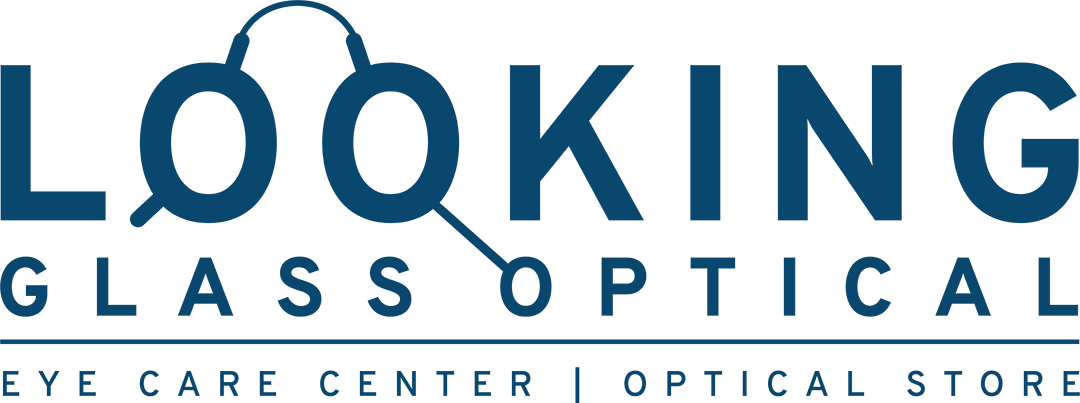Why Regular Eye Exams Are Crucial for Eye Health
Consider the intricate and vital role your eyes play in your daily life. They play a fundamental role in how we perceive the world around us. Eyes are also a great indicator of our overall health. Yet, many take their eyesight for granted. As a crucial sensory organ, your eyes deserve meticulous care and attention. Regular eye exams are a foundational component of this care, serving as a proactive measure to safeguard both your vision and your well-being.
Regular eye exams also serve as a vital early warning system. At Looking Glass Optical, exams allow us to detect certain conditions at their onset. With early intervention and proper management, the progression of these conditions can be slowed or even halted, preserving your vision and preventing severe complications. Here are some more reasons regular eye exams should be part of your yearly health appointments.
The Importance of Scheduling Vision Exams
In our fast-paced lives, it’s easy to overlook the significance of regular eye exams. The reality is quite different. Regular eye exams are like silent heroes, working behind the scenes to protect and preserve our most precious sense – our sight. These routine check-ups are not just about the clarity of your vision but about safeguarding your eye health in ways you may have never considered.
Detecting Eye Conditions Early
As we mentioned above, one of the primary reasons for regular eye exams is the early detection of eye conditions. Many eye diseases and disorders, such as glaucoma, cataracts, and macular degeneration, progress slowly and often go unnoticed in their early stages. Regular eye exams can catch these issues before they cause significant damage to your vision. Early detection means more effective treatment options and a better chance of preserving your eyesight.
In addition, having regular exams allows us to see the whole picture. Your family history, lifestyle, and age are all factors we look at that can influence your risk of developing certain eye conditions. For instance, if your family has a history of glaucoma, you may be more susceptible to it. Regular eye exams allow your eye care professional to assess risk factors and recommend appropriate preventive measures or treatments.
Up-to-Date Prescription & Vision Correction
For those who wear glasses or contact lenses, changes in vision are common as you age. An outdated prescription can lead to discomfort, eye strain, and reduced visual acuity. Regular eye exams ensure that your prescription is up-to-date, providing you with the clearest and most comfortable vision possible.
If you don’t regularly have corrective lenses, you still need a regular eye exam. Blurry vision is a common problem for many people and can develop gradually over time. Sometimes, we adapt to these changes without even realizing it. Regular eye exams can pinpoint changes in your vision. Correcting your vision can significantly enhance your quality of life, making reading, driving, and computer work more comfortable and enjoyable.
The Frequency of Regular Eye Exams
Now that the importance of regular eye exams is clear, it’s essential to understand the recommended frequency for these exams. The ideal frequency can vary based on factors such as your age, existing eye conditions, and individual risk factors. Here’s a general guideline:
- Infants and Toddlers: We recommend infants and toddlers have their first comprehensive eye exam between six and twelve months of age. This initial assessment lays the foundation for monitoring their visual development and ensuring any potential issues are addressed promptly.
- Children: To support their overall development, children should have eye exams at the age of three and before starting school. Additionally, follow-up exams should be scheduled as advised by their eye care professional. These examinations help identify and address any vision-related challenges that might affect their academic performance and overall quality of life.
- Adults (Aged 18 to 60): Once you reach adulthood and are between the ages of 18 and 60, without specific risk factors or existing eye conditions, the recommended interval for eye exams is approximately every two years. These regular assessments ensure that your vision remains clear and that any changes are promptly addressed to maintain optimal eye health.
- Adults (Aged 61 and Older): As we age, our eyes may become more susceptible to certain conditions and changes in vision. For adults aged 61 and older, it is advisable to have annual exams. This frequency allows for the close monitoring of any age-related eye issues and ensures that appropriate measures are taken to preserve vision and overall eye health.
It’s crucial to note that while these guidelines provide a helpful framework, individual circumstances can vary significantly. Therefore, make sure to consult with your eye care professional. At Looking Glass Optical, we provide personalized recommendations tailored to your unique needs and considerations.
Make An Appointment at Looking Glass Optical Today!
Looking Glass Optical will always advocate for regular eye exams. These exams extend far beyond the realm of checking your vision; they are a critical cornerstone of maintaining your overall health and well-being. By making regular eye exams a part of your healthcare routine, you not only ensure the clarity of your vision but also take proactive steps to enhance your quality of life.
Don’t wait until your vision becomes compromised or health issues go unnoticed. Contact us today or book an appointment online. Your eyes will thank you, and you’ll enjoy the benefits of clearer vision, early detection of potential health concerns, and the confidence that comes from taking proactive measures to maintain your eye health. At Looking Glass Optical, we are here to support you on this path to a brighter, healthier future.
